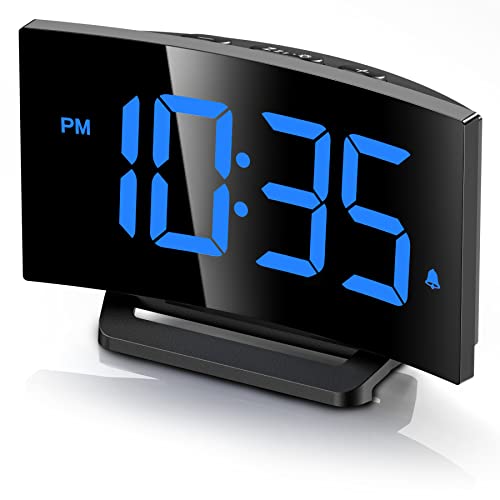We Use CookiesWe use cookies to enhance the security, performance,
functionality and for analytical and promotional activities. By continuing to browse this site you
are agreeing to our privacy policy
Best Pool Alarms
From leading brands and best sellers available on the web.#2

HENDUN
HENDUN Pool Gate Alarm Outdoor Wireless with Remote, 140db Loud, Waterproof Door Alarm Sensor, Kids Safety, Weatherproof Garage Fence Entry Chime (2-Pack)
View Product
#3

TECHKO
Techko S189 Ultra Slim Safe Pool Alarm for Kids, ETL Listed UL 2017 Compliant, Indoor/Outdor Weather Resistant, 110db Loud Alarm with 2X Bypass Buttons, Gray, 1Count
View Product
#4
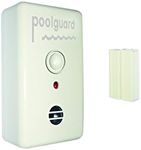
PoolGuard
Poolguard DAPT-2 Water Hazard Pool Door Alarm, White
View Product
#5
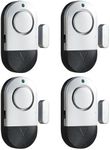
Zabree
Zabree Door Window Alarms, 120 DB Pool Alarms for Inground Pools, Magnet Pool Door Window Security Alarms
View Product
#6
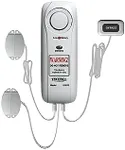
TECHKO
Techko S187D Safe Pool Magnetic Sensor Entry Alarm
View Product
#7
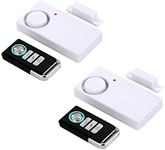
HENDUN
HENDUN Wireless Door Alarm with Remote, Windows Open Alarms,Home Security Sensor, Pool Alarm for Kids Safety, Sliding (2 Pack)
View Product
Buying Guide for the Best Pool Alarms
Choosing the right pool alarm is important for ensuring the safety of everyone around your pool, especially children and pets. Pool alarms are designed to alert you if someone or something enters the pool unexpectedly. When shopping for a pool alarm, it's important to understand the different types and features available so you can select the one that best fits your pool setup and safety needs.Type of AlarmThe type of pool alarm refers to how the device detects entry into the pool. The main types are surface wave sensors, subsurface sensors, wearable alarms, and gate alarms. Surface wave sensors float on the water and detect movement on the surface, while subsurface sensors are installed below the water and sense changes in water pressure. Wearable alarms are attached to a person or pet, and gate alarms are installed on pool gates to alert you when the gate is opened. Choosing the right type depends on your pool environment and who you want to protect. For example, if you have small children, a combination of gate and water alarms may offer the best coverage.
Sensitivity AdjustmentSensitivity adjustment allows you to control how easily the alarm is triggered. This is important because you want the alarm to go off for real emergencies, not for wind or small debris. Some alarms let you adjust the sensitivity to ignore minor disturbances but still detect significant movement. If your pool is in a windy area or you have a lot of leaves falling in, look for an alarm with adjustable sensitivity so you can fine-tune it to your environment.
Alarm VolumeAlarm volume refers to how loud the alarm sounds when triggered. A louder alarm is more likely to be heard inside your home or from a distance, which is crucial for quick response. Alarm volumes are usually measured in decibels (dB). If your pool is far from your house or you have a large property, choose an alarm with a higher volume to ensure you can hear it wherever you are.
Power SourcePool alarms can be powered by batteries or plugged into an electrical outlet. Battery-powered alarms offer flexibility in placement and will work during power outages, but require regular battery checks and replacements. Plug-in alarms don't need battery changes but must be installed near a power source. Consider your pool's location and how often you want to maintain the alarm when deciding which power source is best for you.
Remote NotificationSome pool alarms can send alerts to a remote receiver inside your home or even to your smartphone. This feature is important if you want to be notified immediately, even if you are not near the pool. If you spend a lot of time indoors or away from the pool area, look for alarms with remote notification capabilities for added peace of mind.
Installation and CompatibilityInstallation and compatibility refer to how easy it is to set up the alarm and whether it works with your specific pool type (in-ground, above-ground, or spa). Some alarms are designed for certain pool shapes or sizes, so it's important to check that the alarm you choose is suitable for your pool. If you prefer a simple setup, look for alarms that are easy to install and require minimal tools or adjustments.

